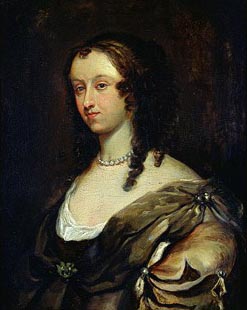Dramaturgical Resources
2010
The Emperor of the Moon
By Aphra Behn
Over the course of the season, our assistant directors and student dramaturgs will be compiling dramaturgical resources relating to each production as it develops. Below are some links to websites which relate to the history of the play, the biography of the playwright, and sites that contextualize and, we hope, shed light on the directorial approach to the dramatic material.
We hope you find these resources of interest.

Aphra Behn (1640 - 1689)
Aphra Behn, born Aphra Johnson, is believed to have been born near Canterbury, England in 1640, and died on April 16, 1689. She is buried in Westminster Abbey which is testament to her standing in English society.
She is considered the first professional Western woman writer and the first woman to have earned a living by pen and paper.
By 1670 her first play The Forced Marriage was produced; England was then no more than ten years into the Restoration period, prior to which the theater had been outlawed. Her success following such a restrictive time further illuminates the level of skill in her work. Equally, as a woman during the 17th century, Behn was forced to overcome the skepticism of society which had not seen women in the role of professional writer before.
It has been said that Behn’s work explores the very complex and crucial interdependancy between sex and power, both in personal and romantic relationships and, more generally, within society. In her play, The Rover, one can see these themes specifically and rigorously investigated. Similarly, Behn’s work can be said to address the struggle of trying to display one's point of view in society that intrinsically opposed that very view. Behn’s quote, “All I ask, is the privilege for my masculine part, the poet in me [...] If I must not, because of my sex, have this freedom [...] I lay down my quill and you shall hear no more of me” in many ways illuminates this boldness of view. It is a similar boldness that led to her early success as a woman writer.
It is notable that during the 17th century the subjects of Behn’s work was not seen as proper and decent areas for women to address, and many viewed her work as crude. In recent years, however, her work has been revisited by readers and scholars who see it as "legitimate and sensual explorations of gender, race and class.” These same ideas are very much the foundation of The Emperor of the Moon. Behind the spectacle, the comedy and the delightful musical interjections, The Emperor of the Moon is a story about uncovering one’s true identity distinct from the expectations of society.
The theme of courting lies central to the plot of the play. Behn works in a very respectable manner to puncture the idea of traditional courtship. The inability of two prospective suitors to announce their affections for a doctor’s niece and daughter is what drives them to designing an elaborate scheme to acquire the girl’s hands in marriage with assistance from the family’s staff of servants.
The musical compositions that were written for the play have since been lost, but it is assumed that historically the compositions would have had been closely tied to the baroque in style. The work as a whole very much embodies the elaborate and heavily ornamented characteristics of baroque music.
The Emperor of the Moon repeatedly references terms associated with astrology which during the 17th century in England was a widely respected theory that was often referenced by learned persons in society. Emperor of the Moon Quotes: “Born free as a man to love and range” “This does not divert me – nor nothing will” “Oh what a dear ravishing thing is the beginning of an Amour!” “He that knew all that learning ever writ, Knew only this - that he knew nothing yet.”
Further information about Behn’s life and written work can be found here.
A chronology of Aphra Behn’s work can be found here.
